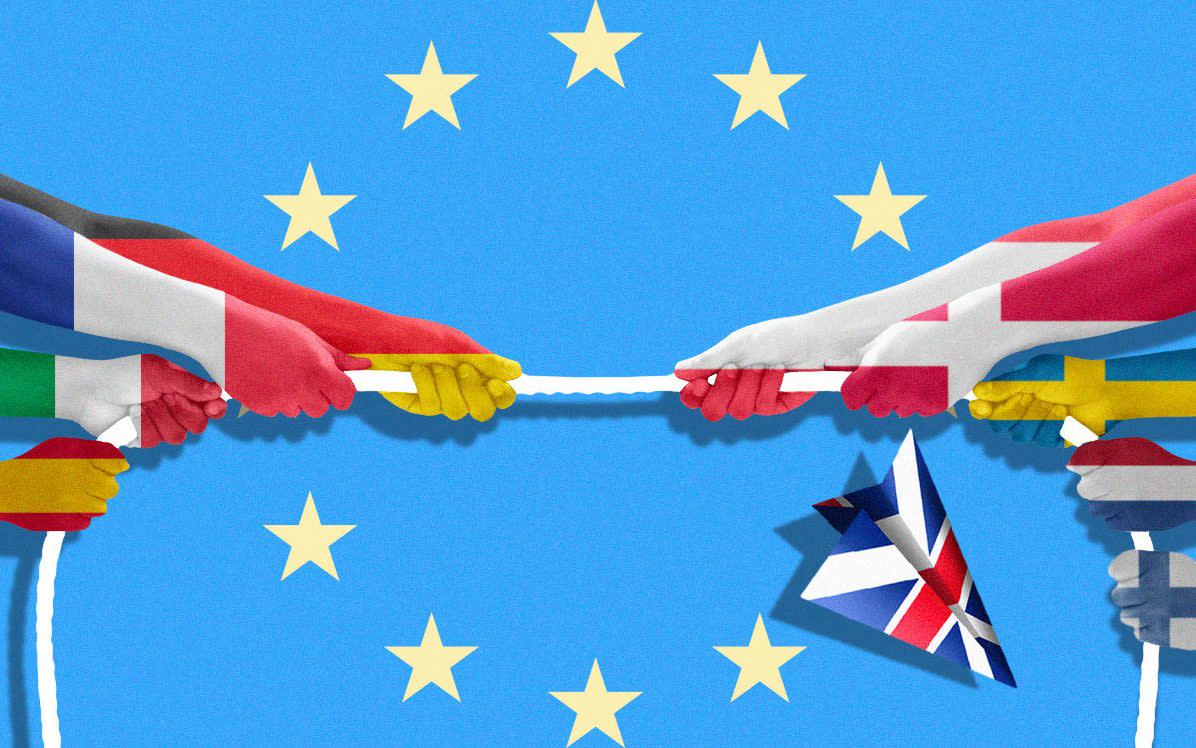Europe sets out stimulus plans as stingy Sunak keeps his powder dry

One country’s economic plan for 2021 will be conspicuous by its absence this autumn.
The likes of Germany, Italy and France are beginning to set out proposals to leave the spending taps on in 2021. Gridlock may have hit Congress in the US but that has not stopped the presidential candidates also laying out visions that will keep borrowing high.
Meanwhile, UK fiscal policy seems to be stuck in crisis rather than recovery mode. The budget has been scrapped and Rishi Sunak appears to be playing his economic plans by ear. Economists estimate the Winter Economy Plan unveiled last week was worth just £4bn - a measly 0.2pc of GDP even as a second wave strikes.
Is the UK going it alone by keeping its powder dry?
“In France, Germany and generally across Europe, budgets are being published without delay,” says Fabrice Montagné, Barclays UK and Europe economist. “We’ve seen some very ambitious spending plans across Europe to not only address the pandemic, but also industrial policy, climate change and technological transition.”
The early part of the Covid crisis saw UK and European policy track each other closely. Economists praised the speedy and huge fiscal response by governments with furlough schemes protecting incomes and a raft of measures bolstering businesses.

Any worries about public finances were eased by ultra-low interest rates and central banks acting as a backstop, calming bond markets and snapping up huge amounts of government debt. Many economists believed spending big now would be less costly later by aiding the GDP part of the debt equation.
However, the debate in the UK appears to have shifted from big spending to tax hikes to rein in debt.
“The UK over-emphasises the need to rein in spending right now and revert to lowering the deficit, especially when there’s no problem with the UK’s financial stability and ultra-low interest rates allow you to sustain higher debt levels,” says Montagné.
“The US and Europe seem to buy into this view and take advantage of those low rates to start seriously investing. If you save the economy now, you can grow out of the crisis and reap the benefits of higher future wealth levels to repay newly issued debt.”
European countries are beginning to outline their 2021 fiscal plans and need to submit budgets to Brussels for approval in the coming weeks. Furlough schemes have been extended into next year in several countries and policymakers are planning major stimulus to revive their economies.
The UK, on the other hand, is replacing its furlough scheme with a much cheaper job support scheme.
Even the scrimpers and savers of the bloc are swapping prudence for big spending. Countries with large piles of public debt, such as Italy, are still proposing expansionary policies but will have their burden eased by the €750bn EU Recovery Fund.
“From the ones we know so far they are keeping it quite expansionary into next year,” says Rosie Colthorpe, economist at Oxford Economics, on 2021 budget plans.
“The response to this crisis has been a bit swifter and more extensive than the last crisis but we will have to see over the next year or so if they make the same mistakes in tightening policy too quickly again while the economy is weak.”
Germany, which was vital in brokering the deal for the Recovery Fund, will continue with heavy spending with its draft budget this week outlining €96bn of extra borrowing to tackle the economic fallout of the pandemic.
“With the investments of this budget, we’re pushing the door further open for the future of our country,” said finance minister Olaf Scholz on Tuesday.
France will pump €100bn into its economy over the next two years with €42bn to be spent next year, its 2021 budget plans revealed on Monday.
And even Italy, whose public debt is set to hit 158pc of GDP this year, outlined plans to spend to boost its moribund economy. It only plans to bring its deficit back down to the EU’s rules by 2023 with a 7pc of GDP shortfall forecast for next year.

The shift to a more relaxed fiscal policy on the Continent may not persist after the pandemic, however. Old divides in the region over policy are likely to return.
Through its Recovery Fund, the European Commission for the first time will issue substantial amounts of debt on markets to pay for a mixture of grants and loans - a fiscal bazooka aimed at helping indebted countries such as Italy and Spain.
However, the plan has been controversial and the details are still being hammered out.
Frugal nations like the Netherlands have been resistant, concerned about being exposed to the spendthrift countries in the South. Others complain it is insufficient in size to move the dial for economies.
The Recovery Fund “is not intended to be permanent and if it was intended to be permanent people would not have voted for it”, warns George Buckley at Nomura.
It is far from Europe’s “Hamilton moment” - when founding father Alexander Hamilton assumed US colonies’ debt in a major step towards becoming one united country, he says. “Hamilton in the 1790s decided to federalise all government debt; this is the federalisation of a deficit.”
In addition, Germany was quick to dampen any hopes of a more relaxed attitude in Brussels after France signalled its support for changing the EU’s stringent deficit rules following the crisis.
Germany's budget plans also suggest it will return to its own “debt brake” rules again from 2022, forcing Berlin to rein in borrowing.
Sunak may be keeping his powder dry ahead of a long winter that could see the most economically damaging restrictions return. Uncertainty over the outlook on Covid, Brexit and unemployment remains elevated and he could still come back with another fiscal bazooka.
But for now the UK is forging a different path to its European neighbours - and economists are raising their eyebrows.


